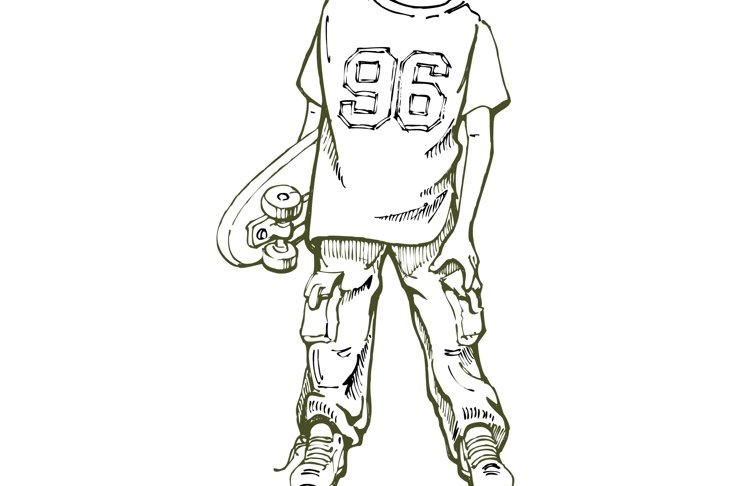
Teaching your children responsibility is one of the backbones of parenting. Why, then, is it so difficult to know how much is too much, and how soon is too soon? Sometimes the hardest thing for an adult to do is to let their child grow up.
My son is starting high school … like … now.
He is two months from being a teenager.
What sort of internal monologue does this create for me?
“It means he is three years from a driver’s licence; a year or two from his first real broken heart; five years from his first legal drink; and oh, I don’t know, some yet-to-be-determined amount of time from marriage … and kids … and forgetting to call his father.”
Never mind whether he can handle his adolescence; can I?
Who’s teaching whom?
Isn’t teaching our kids responsibility really about our own emotional elasticity? It is a growing equilibrium of how much they pull, versus how much you hold back, balanced against what your relationship can handle before it all snaps like a fatigued rubber band.
Shouldn’t they also, technically, be teaching us about the world? After all, as of the age of 25, our brains become more and more rigid, less and less flexible. My brain has been hardening for 20 years. As has my lower back. I have the neuroplasticity of a basketball net.
I can still remember my son’s first week of kindergarten. He was punishingly brave. He wouldn’t cry until his profile had almost disappeared across the elementary school threshold. He had droopy cheeks and a posture that occasionally urged his belly to protrude. A five-year-old Alfred Hitchcock. Every single day a tear rolled down his chubby face just before the school swallowed him like a candy it was rushing to savour.
That was the same week I discovered that sending your child to kindergarten isn’t a legal obligation in my province. What?! We can keep him home and law enforcement won’t arrest him for truancy?! Shouldn’t we at least try homeschooling?
Apparently yelling, “I want him back!” through a window during circle time is considered harassment in some jurisdictions.
“It will teach him independence,” my wife said.
“It’ll be good for him to engage with his peers,” said my closest friend.
“Make sure he’s immunized,” my pediatrician warned.
Kindergarten did become a stepping stone for his integration into society (a fact I should have learned from his early artwork: it was brilliant—he said it was an upside-down giraffe eating a Froot Loop, but I knew better!). It was also a leap for me, as a parent and an adult, off the ledge of dependency.
He needed to learn how to not have me around, and I needed to learn to trust the world with my son. I had to fill the hours between 8 am and 2:20 pm being someone other than Daddy.
One would have thought I had become somewhat calloused years earlier when my wife and I Ferberized him. You remember that, right? Letting them “cry it out?” It involved us trying to pretend we were enjoying Netflix while our infant bombarded the neighborhood with blood-curdling screams. If my baby had been a cat or a dog, the neighbours would have called the police, or the pound, and frankly, I would have thanked them for it.
What the expert says
Nina Laugesen, PhD, child psychologist, says teaching children responsibility and independence “helps them develop better self-esteem and self-confidence … they learn to not be afraid of making mistakes.”
Ironically, The Ferber Method is also referred to as “graduated extinction,” possibly because graduated extinction is also what is happening to your patience during that period.
Why was it important to Ferberize? Because, we told ourselves, it was important he learned to soothe himself; Mummy and Daddy won’t always be there. But, as we admitted later on, it is because we desperately wanted some time to ourselves! Of course I thought Dr. Ferber was brilliant: he allowed me to discover The Sopranos while my son cried bloody murder from his crib.
Once our infant stopped crying, what did we do? We checked on him. Is he breathing? Is he dreaming? Is he too hot? Is he too cold? Should he be on his back or on his stomach, or with or without a blanket? Get the “What to Expect” book!
He was fine; it was I who was having trouble letting go.
He was fine in kindergarten, too.
He is still fine, and I’m still trying to deal with it.
As kids grow (and parents age) they all tend to follow remarkably similar paths to high school. We seem to be the ones who gravitate toward different moulds: Tiger Moms, Helicopter Parents, Free-Range Parents, Attachment Parents, etc.
I haven’t seen so many labels since I started preparing his duffle bag for sleep-away camp—only to acknowledge the horrific feelings I had about sleep-away camp and kept him home instead. (Hey, I pay him each week to mow the lawn and pull weeds; that’s life experience, no?)
What the expert says
Laugesen says that one way parents can learn to trust themselves, is, ironically, by taking baby steps: let your child take on more responsibility gradually. “This will allow you to slowly learn to cope with your own anxiety and develop confidence in your child’s abilities.”
As a preteen, he seems very well adjusted. It’s my wife and I who debate over, and eventually relinquish, the parental leash—if only millimetres at a time.
“Where’s the boy?” she’ll ask.
“Bike riding,” I’ll say, proudly. Look at me: teaching him independence.
Then come the questions I don’t always have answers to: Where did he go? How long will he be gone? Did he bring a phone with him?
Oops. Don’t know the answer to those. He is wearing a helmet, though. That’s already progress from when I was his age. See? I did teach him something.
What the expert says
But how do you know if your child is ready to go from baby steps to giant leaps of responsibility? Laugesen has a crazy idea: ask them! “If your child tells you a task is too difficult … listen carefully, validate his/her feelings, and then work with him/her to devise smaller, more realistic responsibilities.”
Our kids are not adults … yet. But they are little versions of adults. They want what we want: to make their own choices, to be trusted, and, when they come home, to be loved.
I believe that, for most lessons, we parents can only lead by example and provide a safe place for them to land (and provide CSA-approved cranial protection).
There is a certain magic for a child who loves being allowed to play away from home, and also loves coming back to it.
Perhaps learning how to provide both of those things to our sons and daughters is our responsibility.
